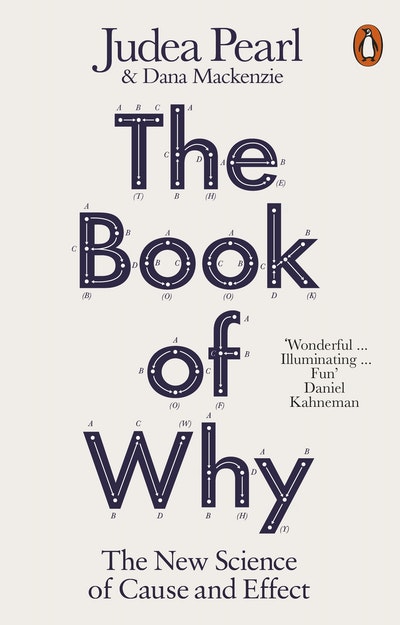- Published: 25 June 2019
- ISBN: 9780141982410
- Imprint: Penguin Press
- Format: Paperback
- Pages: 432
- RRP: $26.99
The Book of Why
The New Science of Cause and Effect
- Published: 25 June 2019
- ISBN: 9780141982410
- Imprint: Penguin Press
- Format: Paperback
- Pages: 432
- RRP: $26.99
Judea Pearl has been the heart and soul of a revolution in artificial intelligence and in computer science more broadly
Eric Horvitz, Technical Fellow and Director, Microsoft Research Labs
Pearl's accomplishments over the last 30 years have provided the theoretical basis for progress in artificial intelligence ... and they have redefined the term 'thinking machine'
Vint Cerf, Chief Internet Evangelist, Google, Inc.
Modern applications of AI, such as robotics, self-driving cars, speech recognition, and machine translation deal with uncertainty. Pearl has been instrumental in supplying the rationale and much valuable technology that allow these applications to flourish
Alfred Spector, Vice President of Research, Google, Inc.
If causation is not correlation, then what is it? Thanks to Judea Pearl's epoch-making research, we now have a precise answer to this question. If you want to understand how the world works, this engrossing and delightful book is the place to start
Pedro Domingos, professor of computer science, University of Washington, author of The Master Algorithm
Have you ever wondered about the puzzles of correlation and causation? This wonderful book has illuminating answers and it is fun to read
Daniel Kahneman, winner of the Nobel Prize, author of Thinking, Fast and Slow


